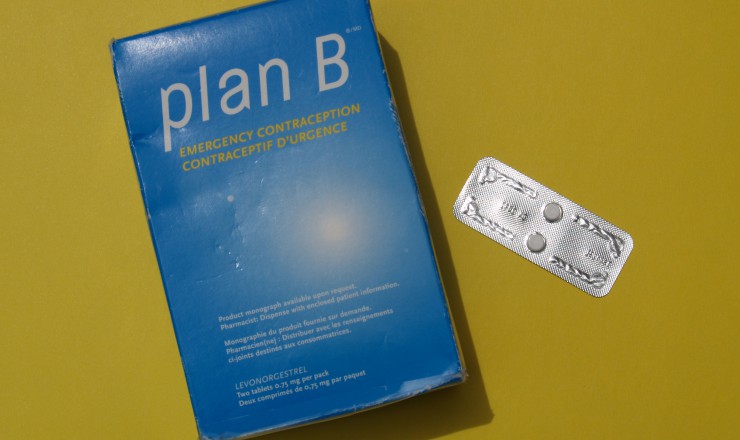Syphilis
What is syphilis?
- Syphilis is a sexually transmitted infection caused by a bacteria.
- It can affect the cervix (the opening to the uterus), penis*, rectum (inside your butt) and throat.
How do you get syphilis?
- Syphilis is found in certain bodily fluids of someone who has syphilis: semen (cum), pre-cum, vaginal fluid and anal fluid.
- You can get syphilis from having unprotected vaginal, oral or anal sex with someone who already has it or sharing needles with someone who has syphilis.
- You can get syphilis if you share sex toys with someone who already has it and you don’t disinfect the toys or put a new condom on them each time a new person uses the toys.
- You can get syphilis if a mucous membrane (inside the tip of the penis, mouth, anus, or vagina*) or a part of your skin that has a tear in it comes into direct contact with a syphilis sore (called a chancre).
- A pregnant person with syphilis can pass it on to their fetus during pregnancy.
- For more information on how STIs are passed on check out Transmitting STIs: An Unwelcome Gift [Link].
How do you know if you have syphilis?
- The only way to know you have syphilis is to get tested.
- Some people do not have any symptoms and may not know they have it. You can pass on syphilis even if you don’t have any symptoms.
- There are 3 stages of a syphilis infection. Symptoms can vary depending on which stage the infection is at.
Stages of syphilis
Primary stage:
- 10-90 days after you get syphilis
- A painless sore called a chancre may appear on or near where syphilis first entered your body (penis, vagina, anus, buttocks, mouth or throat)
- Many people don’t notice the sore because it’s painless
- The sore can heal on its own, but you still have syphilis
- You must be treated for syphilis to be cured. If syphilis is left untreated, it will continue to the next stage
Secondary stage:
- 4-10 weeks after the chancre appears
- A rash can appear on the palms of your hands, soles of your feet, chest and/or back
- In some cases, there may be muscle and joint pain, swollen glands and patchy hair loss
- These symptoms will disappear on their own, but you still have syphilis
- You must be treated for syphilis to be cured. If syphilis is left untreated, it will continue to the next stage
Early latent/late latent stages:
- One year or more after getting the infection
- There are no symptoms during these stages. You may or may not be able to pass syphilis on to other people during these stages, but the infection will continue to the next stage
Tertiary stage:
- People who have syphilis but were never treated may enter this stage 10-20 years after they first got syphilis
- This stage of syphilis can cause serious heart, brain, liver, eye and bone disease
Remember: The most common symptom of syphilis is no symptoms at all
How can you get tested for syphilis?
- A blood test is used to test for syphilis.
- If you want to be tested for syphilis, ask specifically for a syphilis test. Do not assume you will be tested for syphilis, even if you ask to be tested “for everything” or “every STI”.
- Talk to your clinician about when you should get tested. It can take 2-12 weeks for syphilis to appear in the blood and to get an accurate test result.
- A pregnant person can pass syphilis on to their fetus during pregnancy. If you are pregnant and have not been tested for syphilis, talk to your prenatal care provider.
- Check out The Real Facts About STI Testing [Link].
What if you test positive for syphilis?
- Syphilis can be cured with injections (shots) of penicillin, or antibiotics in a pill form if you are allergic to penicillin. You should get all of your injections/take all of your medication even if your symptoms go away before you are finished treatment.
- Your sexual partners should also get tested and treated. If they don’t, they can give syphilis to you again.
- It is important to have a follow-up test after you have finished all your injections/medication to make sure the treatment was effective. Talk to your clinician about when to get re-tested.
- To make sure you don’t give syphilis to your sexual partners, wait for 2 weeks after treatment has finished and your symptoms have gone away to have sex again.
- It is important to treat syphilis. If left untreated, syphilis can lead to serious health problems many years later, including severe damage to the heart, brain, liver, bones and eyes.
- Syphilis is a reportable infection. This means that if you test positive for syphilis, you may be called by a public health nurse to get contact information for current and past sexual partners so that those people may be encouraged to get tested. Your name is not disclosed when a sexual partner is contacted.
- You can also contact current and past sexual partners yourself, or use an anonymous notification service like tellyourpartner.org.
How can you lower your risk of getting syphilis and/or passing it on to your partner(s)?
- Make informed decisions. Talk to your partner(s) about STIs and the use of safer sex tools.
- Use condoms on penises or dildos for vaginal or anal sex, use latex gloves for finger play and fisting, and use condoms/dams for oral sex to lower your chances of getting or transmitting syphilis.
- If you are sharing sex toys, be sure to disinfect them or put a new condom on them when a new person uses the toys.
- Get tested for syphilis and other STIs when you or your partner has a new sexual partner. Or, if you have new partners often, get STI testing every 3-6 months. If you have symptoms of an STI, get tested right away.
- If you test positive for syphilis, follow your clinician’s instructions for treatment and follow-up.
- For information on how to protect yourself and your partner, check out Protecting Yourself and Your Partners From STIs [Link].
Partner Notification
- If you are diagnosed with syphilis, it is important that you or someone from the public health department notify your past sexual partners so they can be tested and treated. For more information on partner notification, check out Telling Your Partner You Have an STI [Link].
For a downloadable resource on this topic, please visit Planned Parenthood Toronto Factsheet Database.
If you have questions about this topic, feel free to contact one of our peer educators. [Link]
*We know that these aren’t the words everyone uses for their bodies (eg. trans folks), and support you using the language that feels best for you.
Last Edited: May 2020






